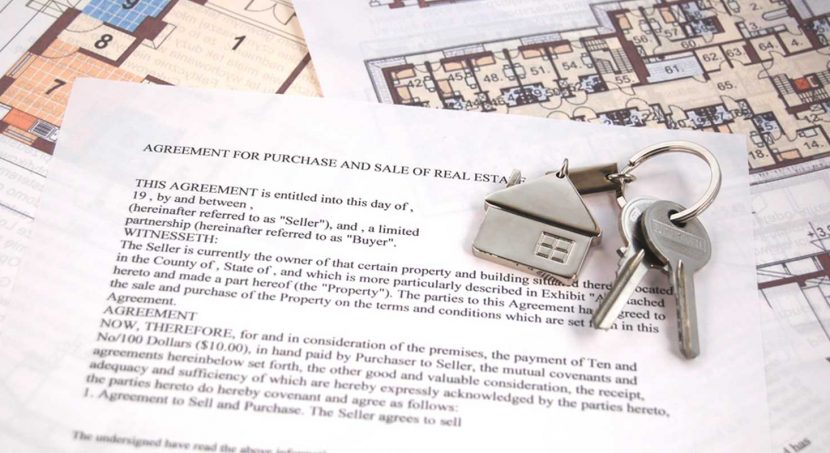
Get in touch
- 3265 W Sarazens Cir Memphis TN 38125
- orders@suretitleco.com
- 901-881-0606
- Monday to Friday: 9am to 5pm
- 3265 W Sarazens Cir Memphis TN 38125
- TITLE ORDERS: orders@suretitleco.com 901-881-0606
Latest Blog Posts
-
Sure Title Company > Blog
SHOULD YOU BE PRESENT DURING A HOME INSPECTION AS THE BUYER?
Yes. The home buyer and the Realtor should attend the home inspection. A home inspection is a critical part of any …
DON’T BE CAUGHT SURPRISED & UNPREPARED: CLOSING COSTS
Closing costs add up to anywhere from 3% to 6% of the purchase price. This means if your home is $400,000 and your closing costs are 4%, you’ll owe $16,000 at closing.
Some examples of costs common during a closing:
A HOME & ITS TITLE CHAIN
Does the seller have the legal right to sell this home? Is the home’s title free of judgments, liens, or bankruptcies that would prevent the seller from transferring a clear title to the buyer? How can you be certain?
WHAT IS HOME EQUITY
Home equity is the difference between what you owe on your mortgage and the current value of your home. You can build equity as you pay down your loan balance and as the market value of your home increases. If you still owe money on your mortgage, you only own the percentage of your home that you’ve paid off. Your mortgage lender owns the rest until you pay off your loan.
WHAT HOME INSPECTORS LOOK FOR
An inspection is the buyer’s greatest opportunity to determine the home’s condition. You will get a full picture of the home from the inspector spending time documenting the big and the little issues. This is not a test that the house passes or fails, but rather it’s a way to identify problems that will need to be dealt with.
BEWARE OVERPRICING YOUR HOME!
We all want to get the most money possible when we put our homes on the market so it’s natural to want to ask for top dollar. After you and an experienced realtor review the comps from your neighborhood, you believe you should price it high so that you have room to come down and still make some good money.
How Does Title Insurance Protect The Buyer?
The title of your home is one document that you may just gloss over while you work on all of the other aspects of a purchase, from the mortgage to the seemingly endless number of forms you must sign. However, you may encounter problems with the property’s title at any time—even long after purchase.
Things You Should Know About Title Insurance
A lender’s policy and an owner’s policy are the two most common types when you are looking for good quality title insurance. The owner’s policy is coverage for the person who is purchasing the house, while the lender’s policy protects the company that holds the mortgage. Both of these policies offer strong protection to the insured parties, in case there are any defects with the property’s title.
3 Types of Real Estate Fraud
Con artists may use several methods to swindle you in one of their schemes. Foreclosure bailouts, home equity fraud, home renovation scams, rental fraud, and deceptive timeshare scams, are just a few types of real estate fraud that may be performed. Here are three of the most common:
DIY QUICK AND EASY REBOOT TO SELL YOUR HOME
If you are preparing to put your home on the market, it might not make sense to complete any big home improvement projects. Once you have met with your realtor and are convinced there aren’t any major repairs to make, consider doing some easy refurbishing yourself to make your home more appealing to buyers. These updates shouldn’t take long to accomplish, and they won’t break the bank.
Categories
- Business (5)
- Buyers Resource Center (10)
- Finance (8)
- FSBO Resource Center (4)
- Marketing (8)
- Misc (2)
- Real Estate (75)
- REALTORS Resource Center (15)
- Sellers Resource Center (8)
- STC (1)
- Title Company (5)
Recent News
Popular Tags
- 2023
- Business Closings
- Buyers
- Closing
- closing agent
- Closing Checklist
- closing company
- Commercial Closing
- commercial deal
- commercial real estate transactions
- FINANCE
- FSBO
- FSBO transactions
- Home Inspection
- Homeowner
- home refinancing
- Marketing
- Oakland real estate closing
- Property Ownership
- Property Ownership Dispute
- Real Estate
- Real Estate Agents
- Real Estate Closing
- real estate closing company
- real estate disputes
- Real Estate Fraud
- Real Estate Fraud and Scams
- real estate market
- real estate transaction
- Realtor
- Refinance
- Refinance Your Home
- Resource Center
- Safety
- Sellers
- smooth transaction
- title commitment
- Title Companies
- Title Companies in Arlington
- title company
- title company in Germantown
- Title Insurance
- Title Search
- title transfer
- verify property ownership













